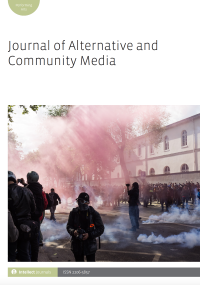
Full text loading...

The role of social media in facilitating far-right networks and propagating far-right narratives is increasingly documented. However, research tends to focus on far-right pages on social media, thus leaving the users of these pages understudied. Relying on interviews with users of the Facebook page of the radical right organization La Meute in Canada, this study investigates individuals’ motivations and practices when using far-right pages on social media, as well as the interplay between their use of these pages and their view of themselves and society. It shows that users of La Meute’s Facebook page perceive (to varying degrees) that mainstream media are biased and do not represent their views nor address their concerns about immigration issues. As such, they seek meaning by using far-right pages on social media, either as their main source of information or to complement mainstream media. On these pages, they encounter a virtual community of like-minded people, which is conceived in opposition to the rest of society who would not be critical enough of mainstream media and immigration. Boundaries delineating the virtual community tend to be particularly pronounced among individuals who use far-right pages on social media as their main source of information.

Article metrics loading...

Full text loading...
References


Publication Date:
https://doi.org/10.1386/jacm_00108_1 Published content will be available immediately after check-out or when it is released in case of a pre-order. Please make sure to be logged in to see all available purchase options.